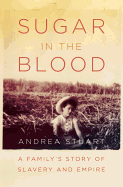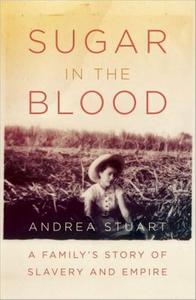

Such language could signal a remote industrial history, a book heavy on economic analysis and lacking a real human story. But for Stuart, the story of sugar is complex, painful and profoundly personal: like many others with Caribbean roots, she is descended from a wealthy sugar plantation owner and a female slave.
"Genealogical research has its limitations; it yields a skeleton, not the body," she explains of her project to unearth this history. "But between the bones I had, nonetheless, glimpsed something intriguing: a story of migration, settlement, survival, slavery and the making of the Atlantic world."
Stuart's convincing speculations, made credible by impeccable research, begin by following her first identifiable ancestor, George Ashby, on the harrowing voyage to Barbados from England in the 1630s. Once there, he tamed a small patch of wild jungle and, eventually, his great-great-great grandson, Robert Cooper, married well and became a powerful and moneyed plantation owner. It is from Cooper and one of his slaves--her name isn't known--that Stuart is descended.
Rather than limit her scope to her own ancestors, Stuart uses them to tell the story of Barbados's unfolding from untamed wilderness to cultivated colony to floundering society devastated by violent rebellion and the fatal pitfalls of empire. Her history of the island's slaves is, necessarily, upsetting but vital--from the horrific atrocities of the Middle Passage to appalling labor conditions and the ubiquitous rape and exploitation of female slaves. Like the other Atlantic colonies, Barbados owes its fortunes to slave labor, and Stuart writes with damning clarity about the "soul-corroding" effect of having absolute power over another human being.
Stuart has a historian's respect for truth, an economist's skill for incisive analyses and a novelist's flair for color and detail. Having published two biographies prior to this book, she has expertly applied her skill and sensitivity to this "biography" of Barbados. Her deeply personal connection to the subject--the "sugar in her blood"--makes this history all the more urgent and engrossing. --Hannah Calkins
Shelf Talker: An Afro-Caribbean writer applies her biographer's skills to her family tree, in which the history of sugar, slavery and empire are carved.

